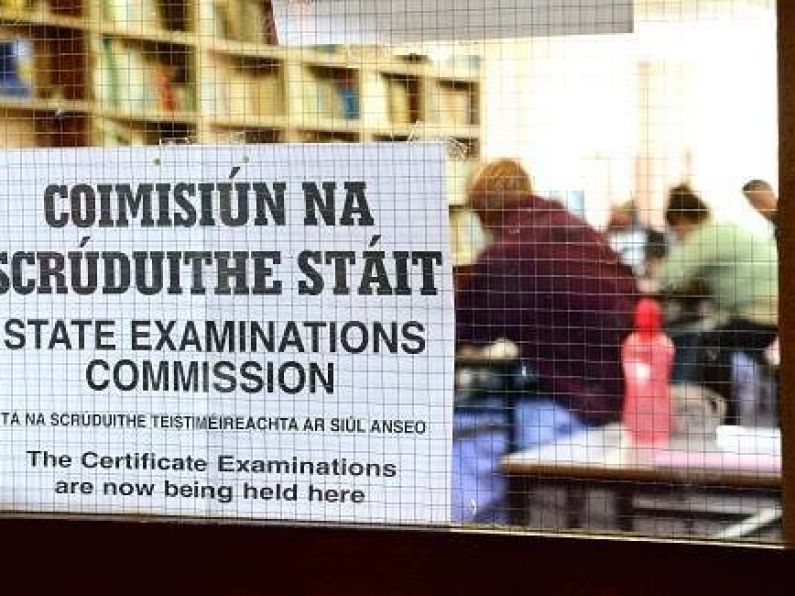By Laurie O'Flynn
This summer has seen a Leaving Cert like no other and, in a few months from now, thousands of students will begin their first year in college in a year which will be like no other.
With just weeks left to finalise the CAO list, students and their families have a slightly different range of issues to consider compared to previous generations due to the response to Covid-19.
Social distancing means that, at the University of Limerick, for example, it is estimated that just 20% of staff and students will be on campus at any one time for the first term.
Colleges around the country are working hard to prepare for September’s intake, and are developing a blended learning program where lectures are online while other elements of the course are on campus.
DCU describes its new scheduling approach as innovative and has committed to maintaining the number of student places available.
While most colleges have a start date, according to Union of Students in Ireland (USI) president, Lorna Fitzpatrick, it’s not clear what that start is going to be. She says that the lack of clear communication from some colleges is creating a vacuum that is being filled with worry or false information.
“We really need clear communication. There is an information vacuum from some institutions and that can do damage because people turn to social media. There should be clear statements of what their plans are, or at least let students know that their college is working on their issue,” she said.

To help students looking for more information on courses and on what the autumn semester will look like, colleges are still holding virtual open days and online Q&A sessions (listed on www.qualifax.ie) where students can find out the most up to date information.
In a lot of ways, it will be business as usual in colleges except lectures will be online. Provision will be made, however, for courses where lab work needs to be carried out, for example, and the details of how this will happen is currently being discussed by the various institutions.
“Priority will be given to modules where learning outcomes cannot be achieved through virtual delivery or where face-to-face delivery is a professional accreditation requirement,” said a spokesman for the University of Limerick, who added that while the college is trying to open up, it also has to be ready to close the campus at a moment’s notice should another lockdown be put in place while still providing educational content for students.
Accommodation
“Accommodation is one of the biggest issues. How will they work it out? Will it be needed one day a week or one week per month?” asks Lorna Fitzpatrick. With a lot less requirement for students to be on-campus, will everyone even need to have accommodation close to their college or can they simply study remotely until things return to normal.
DCU already has a policy in place regarding campus accommodation. In an online address, President of DCU, Professor Brian McCraith, says that the college’s approach to campus accommodation will be flexible.
A student who is offered a room pays a fully refundable deposit. The rooms are to be allocated after the timetables are issued. If a student’s timetable means that they only need the room for a day, a week or for one semester etc, then they will be charged accordingly. Also, if a student’s timetable means that they no longer require accommodation, the deposit will be fully refunded.
While DCU is offering a fair deal, there are other cases where students are being offered a ‘great deal’ for accommodation if they sign the contract on the spot. However, USI and the housing charity Threshold are warning students not to sign contracts so soon as they could end up being forced, under contract, into paying rent unnecessarily as lectures go online and the student may not even need that accommodation.
Broadband
While students will be spending less time on campus next term, some may still decide to move from home just to get a better internet connection, according to Lorna Fitzpatrick.
“In parts of rural Ireland it’s not possible to engage in long term learning. Even if people invest in broadband they still might not get a good enough connection,” she explains.
As a result USI are calling on the government to consider the possibility of allowing students to use HEAnet in public buildings in their locality, which would provide a more enhanced internet connection.
HEAnet provides internet connectivity to education and research organisations throughout the country, including all primary and post primary schools.

Due to Covid-19, students are facing new questions this year around issues like accommodation, broadband and work experience.
Devices
“You need a decent device to dial into lectures and do assignments. We are concerned that disadvantaged students will become even more so if they can’t afford wifi or devices,” says Lorna Fitzpatrick, adding that universities are under financial pressure so they can’t provide these much-needed devices.
Work experience
Many college courses include an element of work experience. As a result of Covid-19 many of these placements ended, but colleges are already trying to negotiate a safe way to restart them with employers. Some strategies include moving out start dates and organising remote working. However, unfortunately, for the moment some employers have pulled out of programs altogether.
One group that has been particularly affected is trainee primary school teachers who have required classroom teaching hours to complete in order to qualify. From September they will have reduced blocks of work experience in schools. It is worthwhile for any students looking at this type of course to find out what measures are in place to deal with the disruption to work placement and how it will affect qualification or accreditation.
Study abroad
Due to travel restrictions, some colleges have already decided to cancel study abroad under the ERASMUS and Non-EU Exchange programs for the autumn semester.
Finance
Many students are minus a summer job due to the knock on effects of Covid-19 on the retail and hospitality industries. This means no savings for fees and costs associated with going to college. Their family circumstances may also have changed so Lorna Fitzpatrick recommends for students to apply for the SUSI grant straight away.
She says that the grant is based on last year’s income, but there is the possibility to include any changes in circumstances. This process takes longer than a normal application, so the sooner it is submitted the better.






